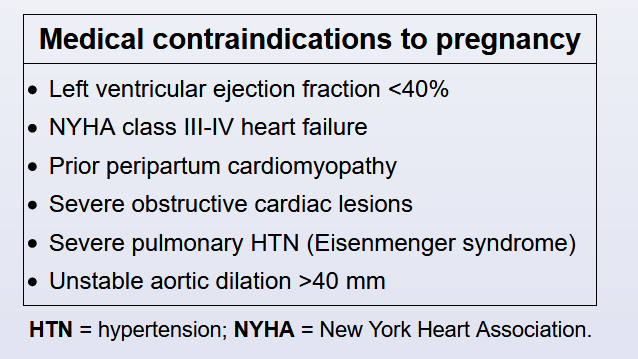contraindications for pregnancy

Eisenmenger syndrome is a complication of an unrepaired ventricular septal defect that leads to pulmonary hypertension, right-to-left shunting, cyanosis, and eventual right- and left-sided heart failure. Decreased systemic vascular resistance (which occurs as a normal physiologic adaptation to pregnancy) can exacerbate the right-to-left shunting and worsen the cyanosis and heart failure. Therefore, pregnancy can cause cardiovascular decompensation in patients with Eisenmenger syndrome and is associated with high maternal mortality rates (up to 50%) (Choice E). Maternal mortality can occur during gestation, labor, or delivery; however, mortality is highest during the immediate postpartum when rapid hemodynamic shifts (eg, increased systemic vascular resistance) occur, for which the heart is unable to compensate. Additional obstetric complications include an increased risk of preterm delivery, fetal growth restriction, and perinatal mortality. Due to high maternal mortality rates and poor fetal prognosis, Eisenmenger syndrome is a medical contraindication to pregnancy, and termination of pregnancy should be recommended.
Patients with Eisenmenger syndrome are encouraged to use reliable contraception; first-line options include hysteroscopic sterilization or a subdermal progestin implant. Estrogen-containing contraceptives are contraindicated due to an increased risk of thromboembolism.